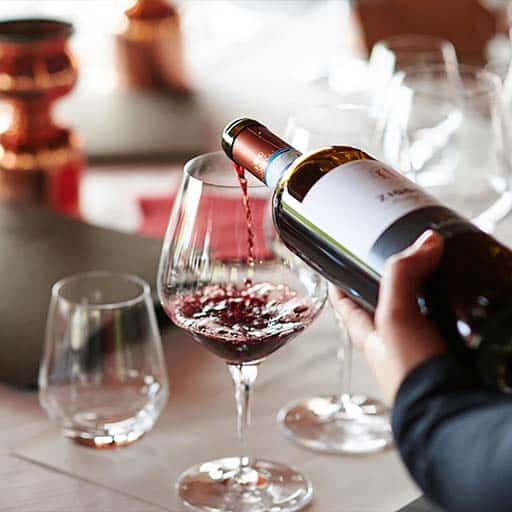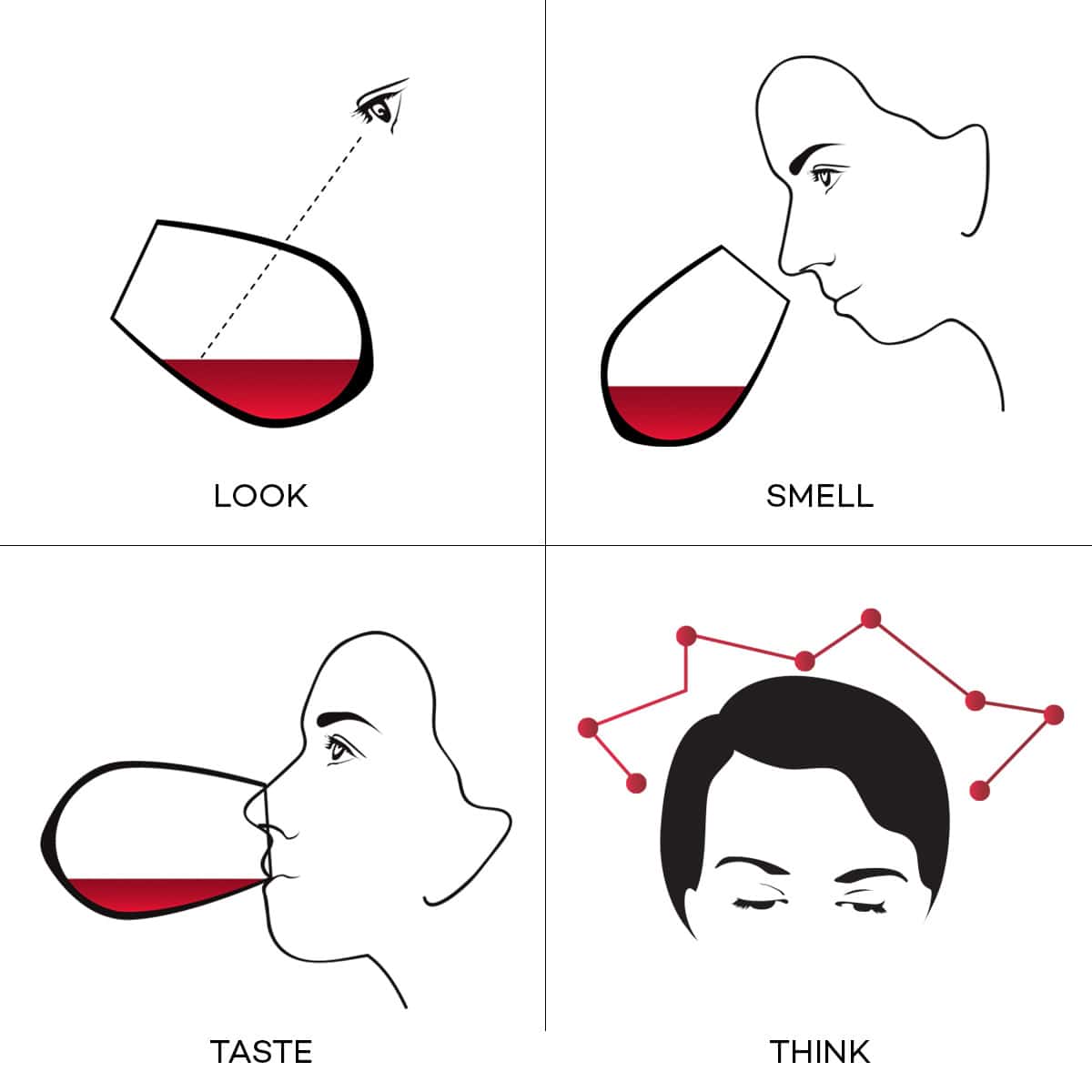Wine Tasting Etiquette

How to Taste Wine Like a Professional?
Wine tastings are a fascinating experience, full of new flavors, faces, and information. But for first-timers and the newly initiated, wine room etiquette can also be confusing and intimidating. By sticking to the basic tips below, even the most inexperienced aficionado can attend a tasting with confidence. Wine tastings are a fascinating experience, full of new flavors, faces, and information. But for first-timers and the newly initiated, wine room etiquette can also be confusing and intimidating. By sticking to the basic tips below, even the most inexperienced aficionado can attend a tasting with confidence.
Learn the “Language” of Tasting
The actual process of tasting and describing a wine often seems daunting to newcomers, and it indeed is a skill that develops over time, but that doesn’t mean you can’t jump into it and start learning right away.
Beginners can break the process into several steps:
- Get a first impression by looking at the color and clarity of the wine.
- Is it a dark, maroon-colored wine with a bit of cloudiness, or is it a clear, bright ruby color?
- Give the wine a light swirl and observe how many droplets cling to the inside of the glass.
- Bring the wine glass to your nose to take in the aroma.
- Try to pick out scents that you recognize–many wine aromas are associated with fruits, herbs, and flowers, while others may have hints of chocolate, vanilla, or wood from the barrels in which were stored.
- Take a sip of the wine and let it roll across your tongue.
- The taste of wine may be sweet or dry, and that which feels heavy in your mouth is described as full-bodied, while the opposite is light-bodied. If its flavor lingers in your mouth, it has a long finish.
- Even if you aren’t comfortable expressing what you feel and taste to other people, it is a good idea to take some personal notes so that you are able to develop your ability to pick different wines apart and explain what you like or dislike about them.

Savor the Experience
A walk-around tasting can be an overwhelming experience for first-time participants, and many people feel pressured to rush through the event or to keep a low profile so that they aren’t embarrassed by their lack of experience or expertise. However, it’s important to realize that the entire purpose of a wine tasting is to try new things and to learn about the wines and that you aren’t going to get judged for not having an encyclopedic knowledge of wine varietals. Taking your time, asking questions, and savoring each sip of wine is the best way to develop your palate and pick up the language used to describe the taste and characteristics of the wine.
Don’t Show Off
Tasting events are open to people of all levels of knowledge and expertise, but it’s good to keep in mind that nobody likes a show-off. In many cases, the tasting room has a staff of entry-level employees rather than wine experts.
While there are always plenty of people who are happy to discuss their opinions and observations about the wines they’ve tried, many tasters are also just there to learn or find a new favorite wine, and may not appreciate a sudden barrage of lingo or esoteric wine trivia.
It’s best to keep conversations light and related to the wines at hand until you’ve gauged whether or not someone is interested in a more technical discussion.
Keep an Open Mind
The best way to approach a tasting to is to leave behind any preconceived notions about what you do and don’t like. Many tastings are carefully organized and may be showcasing a specific theme or region, and you won’t get the full experience if you refuse to try a particular varietal or country of origin. The worst-case scenario is that you dislike the wine and pour it out, but you might also discover a new favorite wine that you would never have tried otherwise.
Don’t Be Afraid to Spit or Dump
Many people believe that spitting or pouring out wine is rude or disrespectful. However, most experts will tell you that swallowing all of the wine offered at a tasting is a great way to end up drunk, with little recollection of the wines you’ve tried or ability to differentiate flavors. It is perfectly fine to roll a wine across your tongue before spitting it out, and it’s also okay to dump out any excess wine in your glass, even if you enjoyed it.
Avoid Fragrances
When going to a tasting, avoid the temptation to wear strong perfume, cologne or scented aftershave. Tasting wine heavily involves your sense of smell as well, and wearing fragrances can interfere with your ability to pick out aromas and flavors in the wine. Not only that, but it can also affect other tasters in your vicinity, and in extreme cases, you may even be asked to leave. Instead, shower before the tasting and apply a light deodorant, and save the fragrances for dinner or drinks afterward.
Be Courteous About Special Requests
If you’d like to take a second taste of a wine, then ask if it would be possible to revisit it; most hosts will be happy to accommodate you. It is usually also acceptable to ask if there are any other reserved wines available for tasting that are not part of the advertised flight. Just be aware that you should make such requests only if you are likely to make a purchase. Wineries usually try to accommodate special requests as long as the taster is polite and non-disruptive, but keep in mind that special treatment requires staff and resources to be set aside for you and that leaving without making a purchase afterward will likely be seen as rude.
Wine tastings may seem overwhelming at first, thanks to all the technical jargon, complex flavor profiles, and social etiquette, but it’s important to realize that they exist as a way to provide people with a fun, informative environment to learn about wines.
By sticking to basic do’s and don’ts laid out above, you can go to your next tasting event without worrying about making any embarrassing mistakes.